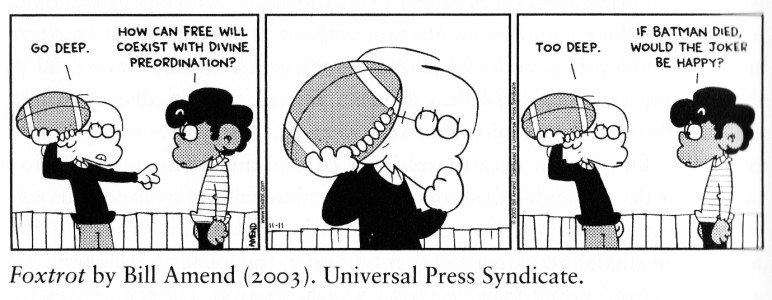
About three years ago, the church where my wife was working graciously decided to rent their auditorium to another church. From the outset, one of the glaring differences was that this other church was complementarian, and the church employing her was egalitarian. But her church had always held — rightly or wrongly — to an 11:00 AM start time, and the other church was willing to meet at 8:55. So the relationship began.
I should also add that both of the churches use the term “Baptist” in their name, or did until the other church underwent a name change a few weeks ago. (To make matters worse, another church sprang up in our small town which also used the same appellation, with a doctrinal perspective entirely unique from the other two.) The other church would be part of the Neo Reformed movement which, I would argue, owes much of its growth to the internet, and really took root in the mid-2000s, but also includes some churches, leaders, authors and key organizations which existed prior.
For our family — as for many readers here — the differences were quite clear, but for others in our town there was confusion between the two. The differences were many, and wasn’t the usual Calvinism vs. Arminianism discussion. (I settled that, eloquently, in this post.) It went beyond that, and often sprang from a great degree of arrogance from those in this new sect. I realized I had never written down all the various topics that came up during dinner at our house, so earlier this week I grabbed a page in my notebook and started making a list.
I wanted to get past the superficial. Everyone knows the Neo Reformed movement has a crush on the English Standard Version (ESV) and prefers the modern hymns of The Gettys, City Alight, etc. to things from Bethel or Elevation; but those are hardly doctrinal distinctives; rather they form part of the vibe which further defines (or isolates) them from the rest of Evangelicalism.
The Neo Reformed people also have a love of words. I don’t mean individual words, like their love affair with the word “Gospel,” but rather publishing and (at the outset) blogging in general. Just look at the pile of books which are given away each year at the Together for the Gospel (T4G) conference, or the proliferation of books published by Crossway (one of their favorite publishers) and you get the idea. Or check the rate at which local church pastors re-post everything that appears on the Desiring God website.
There could be different reasons for this. I often asked people, ‘Why don’t Salvation Army leaders have blogs?’ My answer was, ‘While everyone else is writing about theology, they’re out in the streets doing theology.’ Perhaps I exaggerated. Perhaps not.
But with all that as introduction, let’s jump in to the actual meat of this discussion and look at some differences.
Chosen/election vs. free will
So first, let’s get a few of the Calvinist distinctions out of the way. There are better articles on this elsewhere, so I’ll leave that with you. Basically, the doctrine of election means that salvation outcomes for every one of us were predetermined before time. In the stronger, double predestination view, the implication is that God created some people for the purpose of destruction. Some people in the movement share that view as well.
Limited vs. unlimited atonement
Did Christ’s sacrifice cover the sin(s) of the entire world, or just the ones who ultimately become one of the chosen? This one is really significant for many and takes up two points in the TULIP acronym, so I felt it should here as well. When asked about this a few days ago, I pointed out that the question of free will is about the individual, while the nature of the atonement — see below — is more about God’s side of the equation.
Hierarchicalist vs. mutalist
This is the question of women in ministry. Can a woman be an elder or deacon? Can a woman be a pastor? Here I am using some excellent alternatives to complementarian and egalitarian which I heard recently in a series of lectures that Tyler Staton did at Bridgetown Church in Portland. (They had never had a formal policy on this and were working on solidifying their position. These are worth tracking down at YouTube; use his name plus the word ‘lecture.’) This is a good a place as any to remind you that this movement is distinct from the classic Reformed movement, or what is sometimes called the Dutch Reformed movement. As an example the CRC church where we live has a woman pastor.
Cessationist vs. Continuationist
To me cessationism seems to be a reverse-engineering of a desire to distance oneself from the charismatic spiritual gifts, especially when the point of cessation is randomly tagged as the end of the apostolic age or the finalization of the canon of scripture. For the record, if someone is sick, and prayer for healing is desired, I would think you want that prayer to be made by someone who believes that God is still in the business of healing. I really think that much of this is part of a larger issue which I would call pneumaphobia or a fear of the Holy Spirit. (Look it up!)
 “The Bible Says” vs. “What is the Way of Jesus?”
“The Bible Says” vs. “What is the Way of Jesus?”
There simply isn’t a chapter and verse for every subject that arises in the Christian’s journey. Some parts of our spiritual formation simply have to be ‘worked out with fear and trembling.’ And sometimes the fear and trembling isn’t even necessary, the WWJD question is sufficient. The Wesleyan Quadrilateral is helpful here, the idea that we can learn from reason, tradition, experience and scripture; but the Neo Reformed movement holds to a very literal meaning of Sola Scriptura meaning “the Word of God alone.” (Though all sides of the quadrilateral appear equal when it’s illustrated, the other three must be in agreement with scripture.)
Outward conformity vs. spiritual disciplines
In the Neo Reformed movement you’re more likely to see an emphasis in program participation and the repetition of the party line on various subjects. Holding a unique individual perspective, dressing differently, voting for a different candidate, etc. can leave one ostracized by the group. In contrast, the practice of spiritual disciplines is often unseen, the product of an inner life which is between the believer and God.
Plain reading vs. higher criticism
Making a huge generalization here, but I see the Neo Reformed community leaning towards a plain reading of scripture, but willing to engage in textual criticism where it suits an apologetic for some of their unique positions. Doing the word study, studying the context, and involving comparative passages are always helpful. In balance though, we have to remember that the problem with trying to figure out how a cat works by dissecting it is that you’ll get your answers, but the cat will be dead. Having said that, deeper textual analysis gets us where we need to be when the so-called literal reading is insufficient.
The wrath of God vs. the love of God
You’re simply more likely to encounter the God of wrath in the Neo Reformed community, but that doesn’t mean that those outside the community get a pass on sin and judgement. This isn’t your usual “God of the Old Testament versus God of the New Testament” dichotomy, but the Neo Reformed movement easily develops the picture of the wrathful God from New Testament texts, especially Romans. Which leads naturally to the next item.
Eternal security vs. holiness
I’ve chosen to tag the holiness aspect of Arminianism as eternal security’s opposite for the same reason a conservative driver, seeing a highway speed sign doesn’t bother to check their speedometer because they know they’re driving legally. In a similar way, for most the idea of losing one’s salvation just isn’t at all a personal concern. The lyric “Prone to wander, Lord I feel it, Prone to leave the God I love;” makes no sense to the person who is abiding in Christ. But while the Neo Reformed people emphasize God’s wrath, make no mistake that many outside that movement believe that you can indeed choose to walk away. (You had free will before, and you keep free will after.)
Penal substitutionary atonement vs. other atonement theories
While the cross meets our sin problem, many believe there is much more taking place on Calvary and invoke multiple atonement theories, or lean in to a particular one of a list that includes: Passover model, ransom model, scapegoat model, moral exemplar, Christus Victor model, covenants-focused model, and others. (Some of these have similarities and other names.) The Neo-Reformed movement stresses PSA over and above all others.
Dispensationalism vs. Covenant Theology
Honestly, this one is over my pay grade, but in Neo Reformed circles, dispensationalism is the default solution to understanding God’s dealings with us today versus his dealings with other people at other times. That said, I’m not sure that I agree with writers online who see Covenant theology as dispensationalism’s true opposite. I think another word is needed here.
Doctrinal certainty vs. the realm of mystery
Sometimes the best answer we can give people is ‘I don’t know;’ or ‘We don’t know.’ Anglicans and Roman Catholics have a better understanding of mystery than Evangelicals, but in Neo Reformed circles there is little allowance for it at all.
Defended sovereignty vs. unthreatened sovereignty of God
This came up in a discussion of “open theology” and would appear in other unusual theological takes where there would be instant outcry that such doctrines undermine the sovereignty of God. Outside of the Neo Reformed movement, there is never a worry that the idea of God’s sovereignty is not able to withstand any challenges. Even though most Evangelicals don’t agree with open theology, God’s sovereignty is a basic aspect of his nature that isn’t threatened by such propositions and as such is easily accommodated.
“Watch dogs” vs. “Guide dogs”
In the Neo Reformed movement you are more likely to see individuals or organizations gravitate to the role of what are called discernment ministries. (Even though discernment is one of the nine charismatic gifts mentioned earlier.) There is a rather enormous propensity in the movement to be calling out those with whom it disagrees, which at one time or another, includes everybody else. These attacks on other Evangelicals are usually not done in a gracious or charitable spirit. Better to be training guide dogs than raising watch dogs.
Just war vs. heavenly citizenship
I wanted to avoid the Anabaptist use of “pacifism” here, and also avoid stereotypes about gun ownership, since that is almost entirely an American phenomenon. But the Neo Reformer is more likely to engage in civic or federal causes whereas those outside the movement, while also willing to speak or serve in the public square, don’t see the urgency of so engaging. The next section is a good example.
“Seven Mountains” vs. “In…but not of the world”
This is a fairly new distinction, but in many conservative circles, as well as in the Neo Reformed movement (and there can be overlap here) the “seven mountains” phrase refers to exerting greater control over society by placing their members in key positions in governance affecting family, religion, education, media, entertainment, business, and government. While maintaining a voice in these areas is important — see previous section as well — there isn’t the same obsession with other Evangelicals.
…So there you have a rather rushed catalog of the various differences found in two different churches in the same city which, coincidentally, both had ‘Baptist’ in their names.



 For seven months, Mrs. W. and I (but mostly her) were forced to become homeschoolers during a period when Kid One wasn’t quite fitting into the public school near our home. Despite the short period in which we did this, we became immediate friends with other people in the homeschool movement, and I would say we can somewhat understand their motivation.
For seven months, Mrs. W. and I (but mostly her) were forced to become homeschoolers during a period when Kid One wasn’t quite fitting into the public school near our home. Despite the short period in which we did this, we became immediate friends with other people in the homeschool movement, and I would say we can somewhat understand their motivation.


















